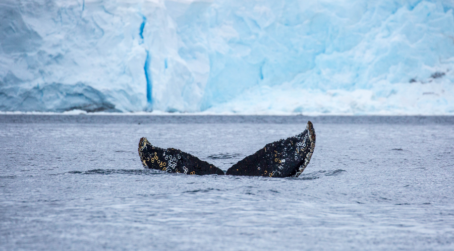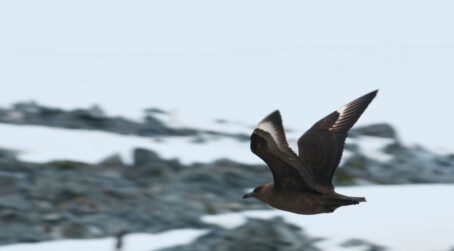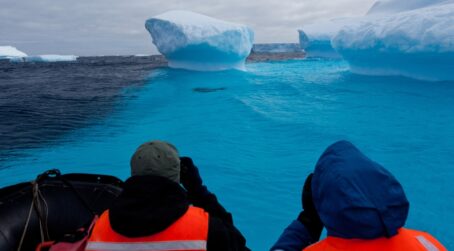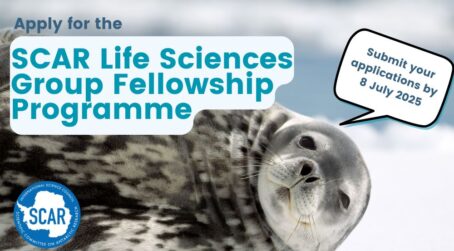Argentina
(at 26 Nov 21) |
Dr Irene Schloss – Instituto Antártico Argentino |
Australia
(at 10 Oct 12) |
Dr Jeff Ayton – Australian Antarctic Division
Dr Dana Bergstrom – Australian Antarctic Division
Prof Mark Hindell – University of Tasmania |
Austria *
|
Currently no representative |
Belarus *
(at 11 Aug 21) |
Assoc Prof Dr Juri Ghigynak – Scientific and Practical Center for Bioresources, National Academy of Sciences of Belarus
Assoc Prof Dr Oleg Borodin – Scientific and Practical Center for Bioresources, National Academy of Sciences of Belarus
Dr Vladislav Myamin – Biological Department, Belarusian State University |
Belgium
(at 20 Jul 20) |
Dr Nathalie Pattyn – Royal Military Academy, Life Sciences Group Deputy Chief Officer
Dr Annick Wilmotte – University of Liège
Dr Anton Van de Putte – Royal Belgian Institute of Natural Sciences
Prof Ann Vanreusel – Universiteit Gent |
Brazil
(at 22 Dec 21) |
Prof Luiz Henrique Rosa – Federal University of Minas Gerais
Prof Moacyr Cunha de Araujo Filho – Federal University of Pernambuco
Prof Eduardo R Secchi – Universidade Federal do Rio Grande
Prof Vivian Helena Pellizari – Universidade de São Paulo |
Bulgaria
(at 15 Oct 21) |
Assoc Prof Dr Lyubomir Kenderov – Sofia University “St Kliment Ohridski” |
Canada
(at 29 Apr 18) |
Dr Diana E Varela – University of Victoria |
Chile
(at 10 Nov 21) |
Dr Marely Cuba – Universidad de Concepción
Dr Elie Poulin – Universidad de Chile |
China
(at 16 Dec 21) |
Prof Yu Yong – Polar Research Institute of China
Prof Zhang Guangtao – Chinese Academy of Sciences
Prof Xu Chengli – Chinese Academy of Medical Sciences
Prof Sun Chengjun – First Institute of Oceanography, MNR |
Colombia *
(at 26 Aug 20) |
Dr Dalia Carolina Barragán Barrera – Fundación Macuáticos Colombia
Dr Rosa Leonor Acevedo Barrios – Bolívar University of Technology
Dr Susana Caballero – Universidad de los Andes
Dr Mario Hernán Londoño Mesa – University of Antioquia |
Czech Republic
(at 08 Apr 21) |
Prof Miloš Barták – Masaryk University
Prof Josef Elster – University of South Bohemia
Assoc Prof Linda Nedbalová – Charles University
Prof Ivo Sedláček – Masaryk University |
Denmark *
|
Currently no representative |
Ecuador
(at 10 Oct 12) |
Washington Cárdenas – Laboratorio de Biomedicina, FIMCM-ESPOL
David Galarza – Programa Antártico Ecuatoriano (PROANTEC) |
Finland
(at 19 Apr 22) |
Dr Harri Kuosa – Finnish Environment Institute (SYKE)
Lauri Arvola – Lammi Biological Station
Jouni Aspi – University of Oulu
Prof Kari Saikkonen – University of Turku |
France
(at 21 Dec 21) |
Dr Paul Laforet – Service médical TAAF/IPEV
Dr Thomas Saucède – Université de Bourgogne / Université de Dijon
Dr Sara Labrousse – LOCEAN CNRS
Dr Yan Ropert-Coudert – Centre d’Etudes Biologiques de Chizé (CNRS) |
Germany
(at 10 Nov 21) |
Prof Dr Wilhelm Hagen – Universität Bremen
Prof Dr Petra Quillfeldt – Justus-Liebig-Universität Giessen
Dr Horst Bornemann – Alfred-Wegener-Institut
Prof Dr Angelika Brandt – Senckenberg Gesellschaft für Naturforschung und Naturmuseum Frankfurt |
India
(at 25Jun24) |
Prof A A Mohammed Hatha – Cochin University of Science and Technology
Dr Sarat Chandra Tripathy – National Centre for Polar and Ocean Research
Dr Runa Antony – National Centre for Polar and Ocean Research
Dr Shramik Patil – National Centre for Antarctic and Ocean Research |
Iran, Islamic Republic of *
|
Currently no representative |
Italy
(at 30 Dec 21) |
Prof Stefano Schiaparelli – Università di Genova
Prof Laura Selbmann – Università della Tuscia
Dr Silvestro Greco – Zoological Station Anton Dohrn
Dr Vincenzo Saggiomo – Dohrn Fondation |
Japan
(at 16 Dec 21) |
Prof Toru Hirawake – National Institute of Polar Research (NIPR)
Dr Akinori Takahashi – National Institute of Polar Research (NIPR)
Dr Kunio Takahashi – National Institute of Polar Research (NIPR)
Dr Shinji Otani – Tottori University |
Korea, Republic of
(at 15 Dec 21) |
Dr Han-Gu Choi – Korea Polar Research Institute (KOPRI)
Dr Sanghee Kim – Korea Polar Research Institute (KOPRI) |
Malaysia
(at 10 Nov 21) |
Prof Dr Clemente Michael Wong Vui Ling – Universiti Malaysia Sabah
Assoc Prof Dr Siti Aisah Alias – Universiti Malaya
Dr Wan Mohd Rauhan Wan Hussin – Universiti Malaysia Terengganu
Assoc Prof Dr Siti Aqlima Ahmad – Universiti Putra Malaysia |
Mexico *
(at 13 Apr 23) |
Dr Miguel Rubio-Godoy – Instituto de Ecología, A.C. (INECOL) |
Monaco *
(at 29 Jan 16) |
Denis Allemand – Centre Scientifique de Monaco (CSM-CNRS)
Céline Le Bohec – Centre Scientifique de Monaco (CSM-CNRS)
Victor Planas-Bielsa – Centre Scientifique de Monaco (CSM-CNRS) |
Netherlands
(at 15 Dec 21) |
Dr Jacqueline Stefels – University of Groningen |
New Zealand
(at 29 Mar 22) |
Prof Ian McDonald – University of Waikato, Life Sciences Group Chief Officer
Prof Craig Cary – University of Waikato
Assoc Prof Miles Lamare – University of Otago
Dr Regina Eisert – Ministry of Business Innovation and Employment
|
Norway
(at 01 Apr 23) |
Dr Andrew Lowther – Norwegian Polar Institute
Bjørn Krafft – Institute of Marine Research |
Pakistan *
|
Currently no representative |
Peru
(at 04 Feb 22) |
Pablo Londoñe – Antarctic Affairs Division, Ministry of Foreign Affairs |
Poland
(at 22 Aug 24) |
Katarzyna Chwedorzewska – Warsaw University of Life Sciences
Piotr Kukliński – Polish Academy of Sciences
Maria Olech – Jagiellonian University
Robert Bialik – Polish Academy of Sciences |
Portugal
(at 15 Jun 16) |
Dr José Xavier – University of Coimbra
Pedro M Guerreiro – University of Algarve |
Romania *
(at 04 Nov 19) |
Acad. Octavian Popescu – Babeș-Bolyai University
Dr Dumitru T Murariu – Institute of Biology Bucharest |
Russia
(at 12 Aug 15) |
Dr Igor Melnikov – Russian Academy of Sciences |
South Africa
(at 09 Nov 21) |
Dr Thulani Makhalanyane – University of Pretoria
Prof Bettine Jansen van Vuuren – University of Johannesburg
Dr Anne Treasure – South African Environmental Observation Network (SAEON)
Dr Sarah Fawcett – University of Cape Town |
Spain
(at 24 Aug 20) |
Dr Leopoldo Garcia Sancho – Universidad Complutense de Madrid
Dolors Vaqué – Centro Mediterráneo de Investigaciones |
Sweden
(at 16 Nov 21) |
Currently no representative |
Switzerland
(at 14 Oct 21) |
Prof Christel Hassler – EPF Lausanne |
Thailand *
|
Currently no representative |
Türkiye
(at 17 Nov 21) |
Dr Atilla Yilmaz – TÜBİTAK MAM Polar Research Institute |
Ukraine
(at 20 Dec 21) |
Maria Pavlovska – National Antarctic Scientific Center
Ievgeniia Prekrasna – National Antarctic Scientific Center |
United Kingdom
(at 04 Jul 22) |
Dr Peter Convey – British Antarctic Survey
Dr Anne Hicks – Derriford Hospital |
United States of America
(at 10 Jul 25) |
Prof Byron Adams – Brigham Young University, Life Sciences Group Secretary
Prof Charles D Amsler – University of Alabama at Birmingham
Prof Daniel Costa – University of California, Santa Cruz
Prof Becky Ball – Arizona State University |
Uruguay
(at 02 Aug 2024) |
Dr. Lucía Ziegler – Eastern Regional University Center, University of the Republic
Dr. Juan Pablo Lozoya – Eastern Regional University Center, University of the Republic
Dr. Maria Morel – Faculty of Sciences, University of the Republic |
Venezuela *
|
Currently no representative |
SCAR has three overarching Science Groups that help to coordinate activities on the disciplinary level. SCAR Member countries are asked to nominate at least one representative from their country to help oversee SCAR’s activities within the disciplinary Science Groups – GeoSciences, Life Sciences, and Physical Sciences. These representatives help to guide the research undertaken as well as make decisions on approving new groups and setting group budgets. They are also asked to provide information on activities within their country that can be shared with the larger Antarctic community. For more information on how SCAR works, please visit the SCAR membership guide.





